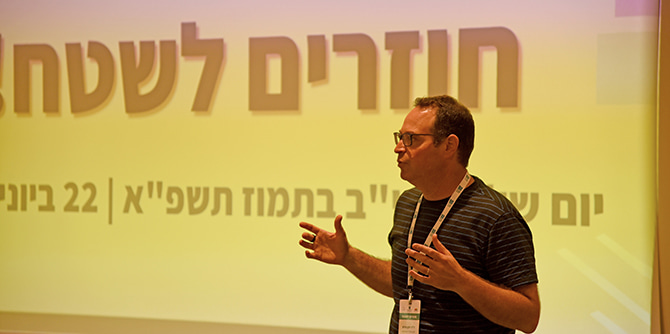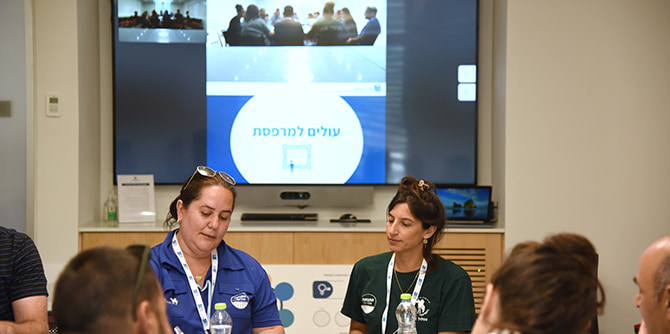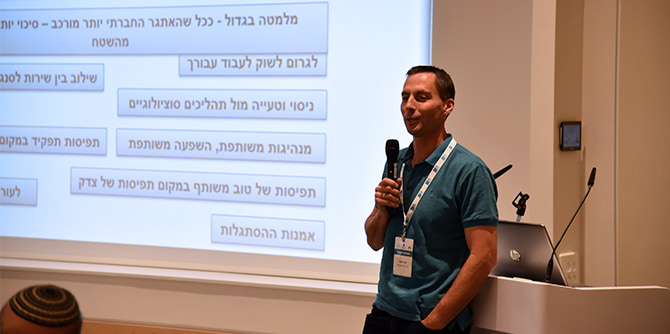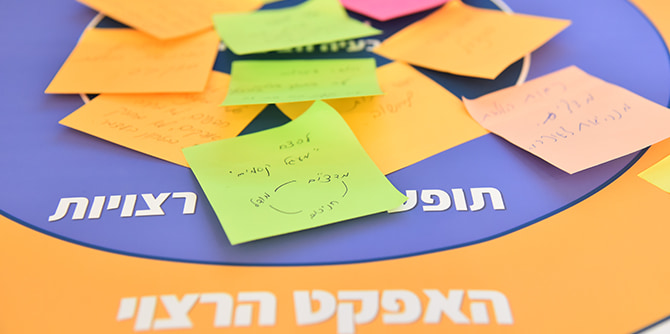During the COVID-19 crisis, the Mandel Youth Leadership Program witnessed the complex challenges that non-formal education organizations in Israel faced, as well as the negative effects of social distancing on children and young people. This crisis, however, also created opportunities for the future, as the responses to the young people’s needs and the desire of young people to resume in-person activities can be leveraged to connect youth to non-formal education activities and increase participation in such events.

For this reason, the Mandel Leadership Institute decided to launch a cooperative initiative that would bring representatives of youth departments in the local government authorities together with representatives of youth organizations that work in non-formal education. Held in cooperation with the
Council for Youth and Children Organizations and the
National Association of Youth Department Directors, this initiative was designed to enable the participants to learn together about the work being done in this field both in Israel and around the world and to derive insights that would increase the strength and influence of the non-formal education system in the State of Israel.
The conference, held at the Mandel Leadership Institute in Jerusalem in June 2021, brought together pre-selected representatives of youth departments in Israel’s local authorities as well as directors of national children and youth organizations. The initiative explored test cases in three municipalities: Daliyat al-Karmel, Ashdod, and Bat Yam. The day of collaborative thinking included joint study, understanding the challenges, and developing methods for addressing the challenges in the best way possible.
The collaborative process that took place is an outgrowth of a view that sees non-formal education as an ecosystem whose parts must be connected to form a full picture – an approach that the Mandel Youth Leadership Program promotes as part of its goals. These goals include building communities of diverse leaders who come from the field of non-formal education and work both together and separately to strengthen values-based education, social solidarity, and equal opportunity; increasing the influence of non-formal education; and giving every child in Israel the opportunity to participate in high-quality education that is individually tailored to his or her needs.
The Mandel Leadership Institute is working on this initiative together with national organizations that do hands-on work in the field of non-formal education. Among these is the Council for Youth and Children Organizations, an umbrella organization that brings together 20 organizations for children and youth that serve more than 150,000 children and young adults and are responsible for more than 1,000 National Service volunteers. Another is the National Association of Youth Department Directors in Israel, a professional union that includes 256 heads of youth departments in local authorities and tens of thousands of youth workers who are involved in non-formal education.

In recent years, local government authorities have taken it upon themselves to work more closely with citizens. These entities help citizens take full advantage of their social and economic rights and provide them with an essential system of services. The passing of Israel’s Youth Law in 2011 also strengthened the role of local authorities regarding non-formal education, as well as their role in establishing infrastructure and services for children and youth. This created a need to develop mechanisms for coordination and collaboration between the local authorities and organizations that engage in non-formal education.

An analysis of the data from the three municipalities that participated in the conference yielded the following recommendations for work in the future:
- To increase the number of children and young people who participate in youth activities by creating partnerships between local government authorities and organizations serving children and youth
- To deepen the development of a local-municipal identity
- To deepen the understanding of the needs of young people and make them partners in formulating the services and content developed for them
- To adapt programs to diverse age groups and population types
- To increase the use of digital media to keep in contact with young people and to establish collaborations within and between different sectors of Israeli society
- To set joint goals in the field of non-formal education and identify additional stakeholders, such as parents and businesses, who are committed to it
The insights gained during the conference served as the basis for a Hebrew report titled “Back to the Field: Models for Cooperative Work between Youth Organizations and the Local Authorities in Non-Formal Education.” This document is now available to serve as a resource for local authorities, youth movements, and youth organizations, as well as for all organizations in Israel that influence society through education.
Read the full report (Hebrew) >>

